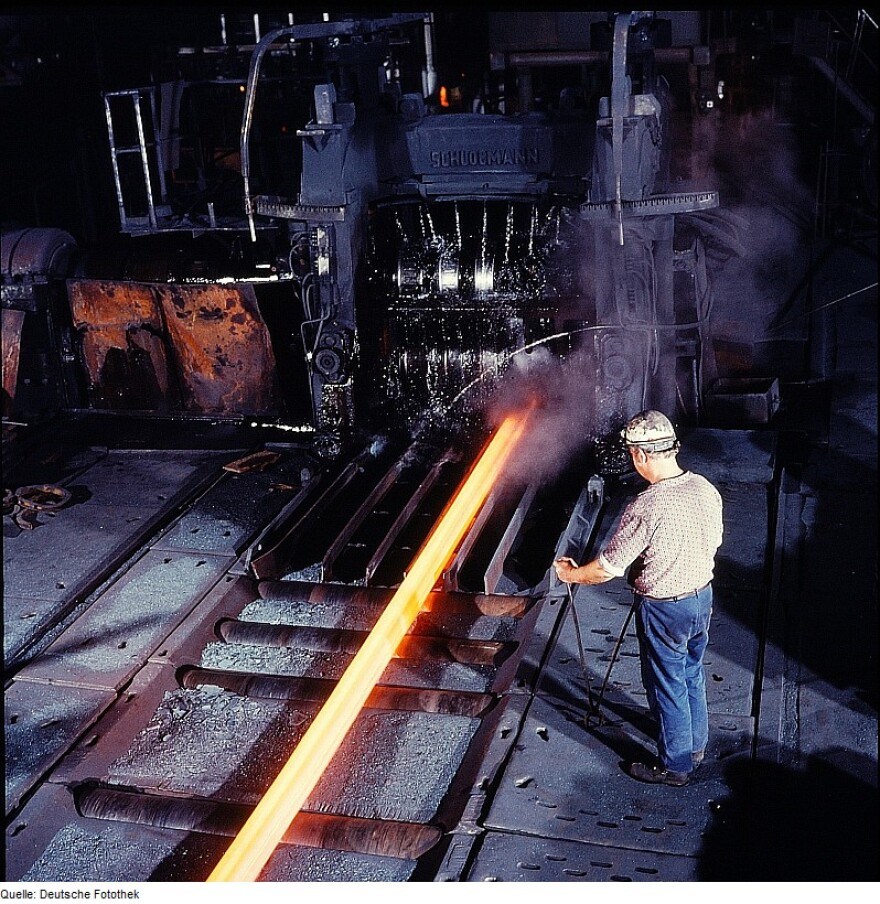President Donald Trump’s steel and aluminum tariffs are designed to make U.S. workers more competitive in the international economy. That could have a big impact on a manufacturing-heavy state like Indiana.
First and foremost, says Jeffrey Bergstrand, a professor at the University of Notre Dame’s Mendoza College of Business, the new tariff is BIG.
“Average US tariffs are about three-percent on average for our country and major industrialized countries. So you go to twenty-five-percent, you’re increasing it eight fold. That’s enormous.”
While the Trump administration claims the tariff will protect the U.S. steel industry, some worry losing imports will increase the cost of steel, and that will trickle down to negatively impact consumers.
Hanover College economics professor Eric Dodge says the move counteracts any positive gain that might have come from last year’s tax overhaul.
“If the prices of things begin to rise, partly due to bad economic policies, the bonus of the tax cuts will quickly go away due to higher prices of stuff all around us. And that’s just so counterproductive to the tax cuts.”
While the steel industry – where Indiana is a leader -- might get a boost, Wabash College economics professor Frank Howland says other industries in the state will suffer due to the increased costs of steel and aluminum.
“Probably either wages will go down for auto workers or there’ll be less employment in the auto industry.”
And, Howland says, other countries could retaliate against the tariff – which might hurt other large producers in the Indiana economy -- farmers.
“We export lots and lots of corn and soybeans to the rest of the world. If the rest of the world wants to raise its tariffs, corn and soybeans are definitely targets that they would consider and Indiana would be hurt.”
Still, Indiana’s two biggest trading partners -- Canada and Mexico -- are exempt from the tariff, so that might insulate the Hoosier State. And Manchester University economics professor Sree Majunder says even China – at whom the tariffs are aimed – may not be in a fighting mood.
“With China, China exports very tiny amount in terms of steel to America so I’m not worried about retaliation.”
Wabash’s Frank Howland says the tariffs miss some of the point -- that the U.S. is losing far more jobs to automation by American companies than because China imports substandard steel…
“In terms of manufacturing sector in general in the United States, we’re producing as much as in the way of manufacturing goods as we did in the past, just with a lot fewer workers simply because our technology has improved.”
President Trump tweeted that he thinks trade wars are good and would help the U.S. However, all the professors interviewed for this story agree nobody wins in a trade war. Notre Dame’s Jeffrey Bergstrand says there are only losers.
“Universally among international trade economists in this country and the rest of the world is there’s unanimity that this is a really bad thing.”

